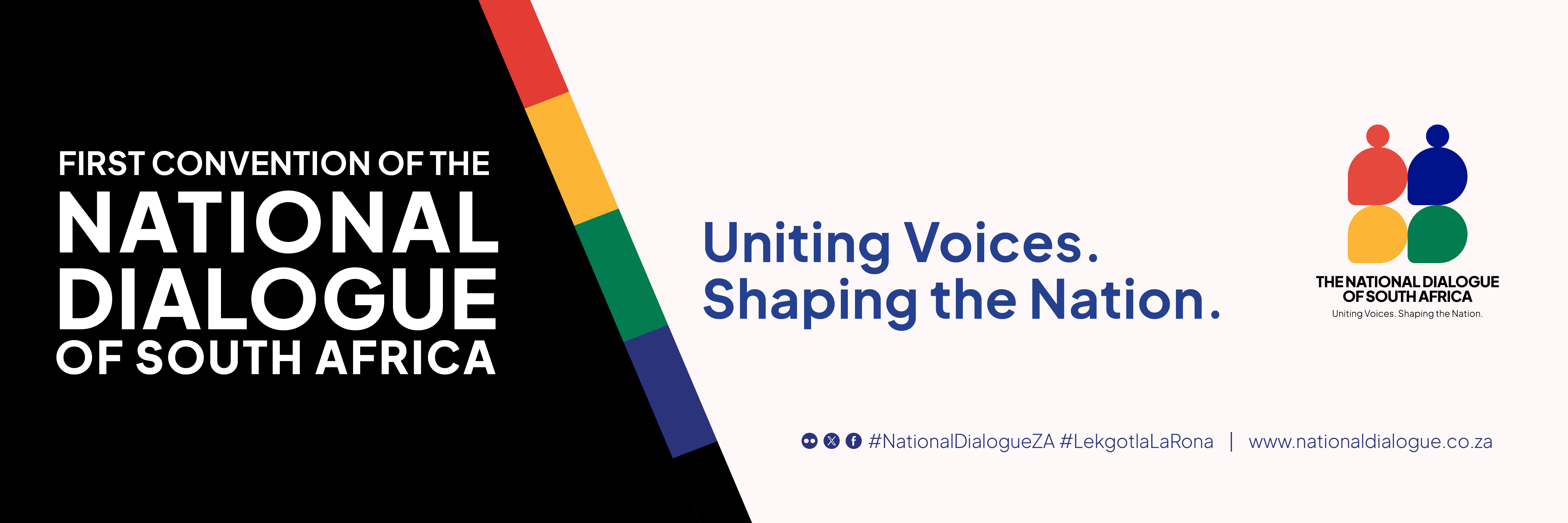
South Africa's National Dialogue: A Model for Inclusive Governance?
South Africa is undertaking an ambitious experiment in participatory democracy. The National Dialogue a six-to-nine-month process initiated by President Cyril Ramaphosa aims to bring together diverse voices from across the country to shape a collective vision for the nation's future. After a successful National Convention in August 2025 that brought together delegates from multiple sectors, the process is now moving toward the appointment of a Steering Committee that will guide public dialogues nationwide. Twenty-six sectors have nominated representatives to this committee, and appointments are expected in the coming weeks. What makes this particularly noteworthy is not just the scale of participation, but the deliberate focus on issues that directly affect children, families, and communities including those experiencing displacement and migration (Government, 2025).
Why It Matters for Mobility and Belonging
At first glance, a national dialogue in South Africa might seem tangential to questions of migration and children on the move. But look closer at the ten "Dialogue Labs" established at the Convention, and the connections become clear:
Education and Health emerged as a priority area, with calls for integrated, child-centred policies that strengthen families and provide mental health support. For children in migration contexts whether moving within South Africa or arriving from elsewhere, these systemic improvements could mean the difference between exclusion and inclusion, between trauma and healing.
Values and Social Fabric explicitly promoting ubuntu (a philosophy emphasizing collective humanity), multilingualism, and inclusivity. These principles align directly with creating environments where newcomers and mobile communities can belong, where linguistic diversity is celebrated rather than erased, and where social cohesion transcends citizenship status.
Intergenerational Trauma and Healing addressed unresolved historical wounds an issue that resonates powerfully for refugee and migrant communities carrying their own histories of violence, displacement, and loss. The Lab's emphasis on community healing and social justice opens space for recognizing how migration itself can be a form of historical trauma requiring collective attention.
The dialogue also tackled Poverty and Inequality, Gender-Based Violence, and Peace and Justice all issues that disproportionately affect mobile populations and that shape the conditions under which people move or stay.
The Structure: Deliberate Inclusivity
What's striking about South Africa's approach is its architectural commitment to inclusion. The process involves:
- Broad sectoral representation: Twenty-six different sectors nominating Steering Committee members
- Quality assurance mechanisms: An Eminent Persons Group reviewing nominations to ensure legitimacy and diversity
- Decentralized dialogue: Plans for public conversations across the country, not just in urban centres
- Institutional anchoring: A permanent National Dialogue Secretariat housed at NEDLAC (the National Economic Development and Labour Council), suggesting this isn't a one-time event but an ongoing democratic practice (Council, 2010).
- Checks and balances: Multiple bodies (the EPG, Inter-Ministerial Committee, and Presidency) safeguarding integrity until the Steering Committee takes over
This multi-layered structure attempts to prevent the dialogue from being captured by any single interest group or political faction. It acknowledges that transformative change requires both grassroots participation and institutional support.
Connections to Children on the Move
For those of us focused on children's experiences of migration and displacement, South Africa's National Dialogue offers several relevant insights:
Child-centered policy integration: The Education and Health Lab's call for integrated, child-centered approaches recognizes what migration scholars have long argued that children's wellbeing can't be addressed in silos. A child who has migrated needs education, health care, protection from violence, and community connection simultaneously.
The role of values in belonging: By centring ubuntu and social cohesion, the dialogue acknowledges that belonging isn't just about legal status or economic inclusion. It's about shared values, mutual recognition, and collective responsibility. This has profound implications for how receiving communities welcome (or don't welcome) children and families who arrive from elsewhere.
Healing as a public concern: The explicit focus on intergenerational trauma and healing represents a significant shift treating psychological and social wounds as matters of national importance rather than private struggles. For migrant and refugee children carrying trauma across borders, this normalization of healing as a collective endeavour could reshape how services and support are conceived.
Participatory democracy beyond voting: The National Dialogue suggests that democracy isn't only about elections but also about ongoing conversation. For non-citizens including children on the move who often can't vote, alternative forms of democratic participation become crucial pathways to influence and belonging.
A Final Reflection
South Africa's National Dialogue represents an attempt to reimagine governance at a moment of crisis and possibility. For those of us working on issues of mobility, migration, and childhood, it offers a reminder that the conditions shaping whether children can move safely, belong fully, and thrive are fundamentally political and therefore potentially transformable through collective action. The dialogue won't solve South Africa's challenges overnight. But by creating structured space for diverse voices to shape the nation's future, it models an approach to governance that treats citizens (and ideally non-citizens) as active participants rather than passive recipients of policy.
Whether this translates into meaningful change for children on the move within and beyond South Africa's borders remains to be seen. But the attempt itself is worth watching, learning from, and perhaps adapting for other contexts where the question of who belongs and who decides remains urgent and unresolved.
References
Council, N. E. (2010). Social Dialogue. Retrieved from National Economic Development and Labour Council: https://nedlac.org.za/wp-content/uploads/2020/12/Nedlac-2010.pdf
Government, S. A. (2025, October 17). National Dialogue enters next phase towards appointment of the Steering Committee. Retrieved from South African Government: https://www.gov.za/news/media-statements/presidency-appointment-national-dialogue-steering-committee-17-oct-2025
Categories:
Tags:

